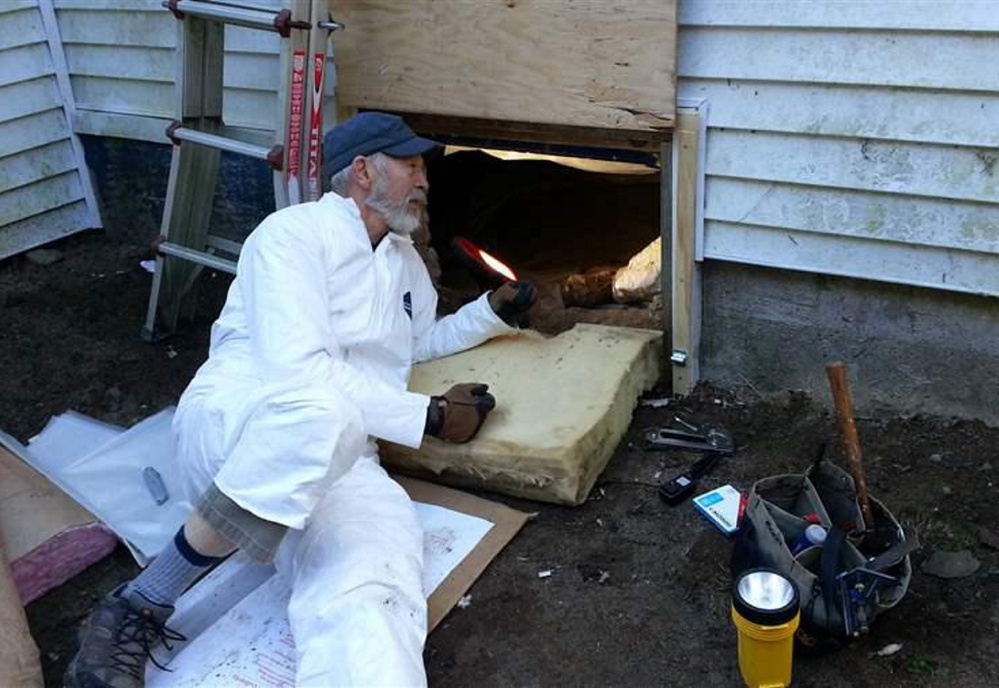A group of retired volunteers at Habitat for Humanity have for two years been offering their services – for free – to midcoast seniors, calling themselves the Harpswell Aging at Home team. In all, according to Stateline.org, they’ve completed about 60 jobs, insulating walls, fixing floors, installing new windows and mitigating fire hazards, all to help seniors remain in their homes.
It’s an approach that is being replicated, to some degree, in more than 60 communities across the state, as volunteers partner with local governments and nonprofits to meet the enormous challenge presented by Maine’s aging population and its old housing stock. It is bringing Maine praise, and rightly so – it may be the only way to complete costly upgrades, such as widened doorways, ramps and extensive weatherization, on such a wide scale.
But it is only part of the solution. Sometimes, it makes sense to renovate an old home to keep it viable for a senior with limited resources. More often, though, new homes, constructed specifically for seniors, are the answer, and there, Maine continues to fall behind.
About a fifth of Maine residents are 65 and over; by 2032, that is expected to rise to a third. Many have or will find themselves and perhaps a partner living in a single-family home too big for their needs.
A lot of these older houses are hard to heat. They have rooms on the second floor that are increasingly hard to reach. As the years go by, maintenance falls behind. If seniors can no longer drive, or if family members do not live nearby, they can become isolated, further harming their health and well-being.
The volunteer groups now working in Maine are an antidote to that depressing situation. They can fix and weatherize. They can bring hot meals and fresh produce. They can offer regular visits, or provide a reprieve to spouses acting as caregivers.
Those are all valuable services that make a real difference. But they are not a substitute for housing that provides seniors new, safe residences, near services and public transportation.
An estimated 10,000 Maine seniors are waiting for such housing, and that number is expected to rise to 15,000 by 2022. Maine State Housing Authority has been constructing an average of about 120 new units a year, and has funding approved for another few hundred. At that rate, thousands of seniors will have to continue to wait while living in substandard or costly housing.
The $15 million senior housing bond now sitting on Gov. Paul LePage’s desk would provide gap financing for another 225 new affordable senior housing units. LePage has held up that bond since it was approved more than a year ago by 69 percent of the voters, and it is crucial that legislators find a way to shake those funds free as the number of Maine seniors who need housing continues to rise.
Maine should be proud that its communities are so full of committed, sympathetic volunteers that groups such as the Harpswell Aging at Home team are being called a model for the rest of the country.
But not all old homes can be patched up. That’s why we need the Legislature to do the right thing, and release the housing bond.
Send questions/comments to the editors.



Success. Please wait for the page to reload. If the page does not reload within 5 seconds, please refresh the page.
Enter your email and password to access comments.
Hi, to comment on stories you must . This profile is in addition to your subscription and website login.
Already have a commenting profile? .
Invalid username/password.
Please check your email to confirm and complete your registration.
Only subscribers are eligible to post comments. Please subscribe or login first for digital access. Here’s why.
Use the form below to reset your password. When you've submitted your account email, we will send an email with a reset code.